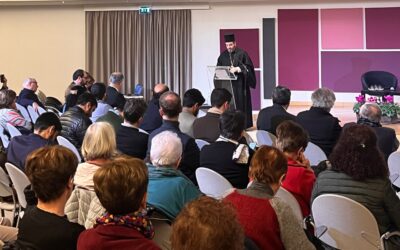The insecurity arising from worldwide challenges such as globalization, climate change and the coronavirus pandemic seems to awaken in many people a new need for a spiritual life. But, as Chiara Lubich says in the following text, spirituality for today is characterized by a strong community dimension. One of the more original characteristics of this spirituality of unity is its communitarian dimension. In the two thousand years since the time of Christ, the Church has experienced the flowering of the most beautiful and fruitful spiritualities one after the other. Sometimes they occurred in the same period, adorning the Spouse of Christ with many saints, like precious pearls and diamonds. But in all this splendor one factor has always remained constant; spirituality was focused primarily on the advance of the individual toward God. … But times have changed. Now the Holy Spirit is inspiring people to walk together, in fact, to be of one heart and soul with all who share their convictions. The Holy Spirit has motivated our Movement from the beginning to make this outreach toward others. In the spirituality of unity one advances toward God by going through one’s neighbor. “I—my brother—God,” we say. You go to God with other people, your brothers and sisters, or rather, you go to God through others. In our era the reality of communion is coming to the forefront; the kingdom of God is sought not just in individual persons but in the midst of the people. Spiritualities characterized as individual usually make precise demands on those involved, such as: Solitude and flight from the world to reach mystical communion with God within. The silence that solitude requires. Separation from others by a veil, a cloister as well as a particular habit. The practice of all kinds of penances, sometimes very difficult ones like fasts and vigils, in imitation of the passion of Christ. In the way of unity we do seek solitude and silence in response to Jesus’ invitation to go to your room to pray, and do avoid others if they lead us to sin, but generally we welcome our brothers and sisters, we love Christ in our neighbors, in every neighbor, as Christ is living in them or can be revived in them through the help we offer. We seek to be united with our brothers and sisters in the name of Jesus, who guarantees his presence in our midst (see Mt 18:20). In the individual spiritualities it is like being in a magnificent garden (the Church), looking with admiration at a single flower, the presence of God within. In a collective spirituality we love and admire all the flowers in the garden, every presence of Christ in others. And we love him in others as we love him within ourselves. …
Chiara Lubich
From: Chiara Lubich: Essential Writings – spirituality, dialogue, culture New City Press, Hyde Park NY, 2007, pp. 27-30.




0 Comments